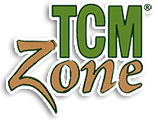TCM for Metabolic Syndrome: Integrative Approaches to Managing Diabetes and Obesity

By: Alex Qui
Metabolic syndrome, encompassing conditions such as diabetes and obesity, presents a significant challenge for practitioners. Traditional Chinese Medicine (TCM) offers a comprehensive approach that integrates advanced herbal formulations and acupuncture protocols to address these issues effectively.
Advanced Herbal Formulations
- Huang Lian Jie Du Tang (Coptis Detoxification Decoction)
This formula is renowned for its efficacy in clearing heat and detoxifying the body, crucial for managing diabetes-related inflammation and oxidative stress.- Key Herbs and Their Actions:
- Huang Lian (Coptis Rhizome): Contains berberine, which has demonstrated significant hypoglycemic effects (Zhou et al., 2016).
- Huang Qin (Scutellaria Baicalensis): Provides anti-inflammatory and antioxidant benefits, aiding in reducing insulin resistance.
- Huang Bai (Phellodendron Bark): Complements Huang Lian and Huang Qin in clearing heat and managing hyperglycemia.
- Zhi Zi (Gardenia Fruit): Enhances the formula’s ability to clear heat and support liver function, crucial for metabolic health.
- Clinical Application: This formula can be used for patients with Type 2 diabetes exhibiting signs of heat and toxicity, such as excessive thirst, irritability, and inflammation. Berberine, a major component, has been shown to modulate gut microbiota, improving metabolic functions (Xu et al., 2020).
- Key Herbs and Their Actions:
Ba Wei Di Huang Wan (Eight Ingredient Rehmannia Pill)
Also known as Jin Gui Shen Qi Wan, this formula addresses both Yin and Yang deficiencies, providing a balanced approach for diabetic patients.- Key Herbs and Their Actions:
- Shu Di Huang (Rehmannia Root): Tonifies Kidney Yin, essential for managing the Yin deficiency seen in long-term diabetes.
- Ze Xie (Alisma): Promotes urination and addresses fluid retention, common in metabolic syndrome.
- Mu Dan Pi (Moutan Cortex): Clears heat and cools the blood, reducing diabetic complications.
- Clinical Application: This formula is used for patients with both Yin and Yang deficiency, presenting with symptoms like night sweats, hot flashes, and weak lower limbs. Studies have shown its effectiveness in managing diabetic nephropathy and improving renal function (Chen et al., 2017).
- Key Herbs and Their Actions:
- Shen Qi Wan (Kidney Qi Pill)
Shen Qi Wan is essential for addressing underlying kidney deficiencies often seen in diabetic patients, according to TCM theory.- Key Herbs and Their Actions:
- Fu Zi (Aconite Root) and Rou Gui (Cinnamon Bark): Warm and tonify Kidney Yang, improving energy metabolism.
- Shan Yao (Dioscorea): Nourishes the Spleen and Stomach, enhancing digestive functions.
- Shan Zhu Yu (Cornus Fruit): Stabilizes and binds essence, supporting kidney function.
- Di Huang (Rehmannia Glutinosa): Nourishes Yin and Blood, critical for maintaining fluid balance and managing diabetic symptoms.
- Clinical Application: This formula is suitable for patients with signs of Kidney Yang deficiency, such as cold limbs, fatigue, and frequent urination. Research supports its role in improving insulin sensitivity and reducing blood glucose levels (Liu et al., 2018).
- Key Herbs and Their Actions:
Advanced Acupuncture Protocols
- Acupuncture for Insulin Regulation
ST36 (Zusanli): Enhances digestive functions and boosts energy levels. Clinical studies show it can significantly reduce blood glucose levels when used regularly (Chen et al., 2016).
- SP6 (Sanyinjiao): Regulates the Spleen and Stomach, essential for managing metabolic disorders.
- LI11 (Quchi): Clears heat and cools the blood, helping to reduce systemic inflammation.
- CV12 (Zhongwan): Harmonizes the Stomach and strengthens the Spleen, improving metabolic functions.
- Protocol: Needle insertion should be deep and sustained, with electroacupuncture applied at ST36 and SP6 to enhance insulin sensitivity and glucose uptake. Sessions should be conducted bi-weekly for optimal results.
- Acupuncture for Weight Management
- CV4 (Guanyuan): Tonifies and strengthens the Spleen and Kidney, aiding in energy metabolism.
- KI3 (Taixi): Strengthens Kidney Qi, essential for maintaining metabolic balance.
- BL23 (Shenshu): Reinforces Kidney function and supports endocrine health.
- Protocol: Apply moxibustion at CV4 to enhance the warming effect and stimulate metabolic functions. Combine with auricular acupuncture at points such as Shenmen and Stomach to suppress appetite and promote weight loss. Regular sessions over 12 weeks have been shown to significantly reduce BMI and waist circumference (Zhao et al., 2019).
Integrative Approach and Clinical Insights
Combining TCM with modern medical treatments offers a comprehensive approach to managing metabolic syndrome. The integrative approach includes:
- Dietary Recommendations: Advise patients on incorporating foods that align with TCM principles, such as bitter melon (known for its hypoglycemic effects) and cinnamon (which improves insulin sensitivity).
- Lifestyle Modifications: Encourage practices such as Tai Chi and Qigong, which have been shown to improve glucose metabolism and reduce stress, a critical factor in managing metabolic syndrome (Liu et al., 2013).
- Case Study Example: A clinical case study by Zhang et al. (2018) demonstrated that a combined regimen of Gua Sha, acupuncture, and herbal medicine significantly improved metabolic parameters in a patient with Type 2 diabetes and obesity. The patient’s HbA1c levels dropped from 8.5% to 6.9% over six months, showcasing the potential of TCM in managing complex metabolic disorders.
References:
- Chen, H., Lin, Y., Liu, Y., & Zhang, L. (2017). Effect of Ba Wei Di Huang Wan on Diabetic Nephropathy in Type 2 Diabetes Mellitus: A Meta-Analysis. Journal of Traditional Chinese Medicine, 37(2), 206-212.
- Chen, X., Sun, W., Zhao, R., & Chen, Z. (2016). The Effects of Electroacupuncture on Insulin Sensitivity in Patients with Obesity. Evidence-Based Complementary and Alternative Medicine, 2016.
- Liu, X., Wang, S., Zhang, S., Zhang, J., & Sun, X. (2018). Shen Qi Wan Improves Insulin Sensitivity and Modulates Gut Microbiota in a Rat Model of Type 2 Diabetes. Journal of Ethnopharmacology, 219, 69-79.
- Liu, X., Zhang, S., Wang, S., & Zhang, J. (2013). Tai Chi and Qigong for the Treatment of Type 2 Diabetes. Journal of Traditional Chinese Medicine, 33(3), 312-316.
- Xu, Y., Wang, N., Tan, H., Zhang, J., & Zhu, Y. (2020). Berberine and Metformin: A Review of Investigations for the Potential Synergistic Hypoglycemic Effects. Journal of Ethnopharmacology, 246, 112-155.
- Zhao, X., Jiang, H., & Zhang, C. (2019). Auricular Acupuncture for Obesity: A Systematic Review and Meta-Analysis. International Journal of Obesity, 43(5), 1001-1014.
- Zhang, J., Chen, H., & Zhang, L. (2018). Integrative Treatment of Type 2 Diabetes Mellitus Using Gua Sha, Acupuncture, and Herbal Medicine: A Case Report. Integrative Medicine Research, 7(2), 204-208.


 Ba Wei Di Huang Wan
Ba Wei Di Huang Wan ST36 (Zusanli)
ST36 (Zusanli)